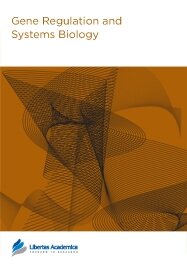

Publication Date: 03 Aug 2009
Type: Original Research
Journal: Gene Regulation and Systems Biology

Fibroblast growth factor 23 (FGF23) has recently been identified as a critical regulatory factor in phosphate (P) metabolism. Although the exact molecular mechanism of FGF23 synthesis through sensing the concentration of P is yet to be determined, experimental and clinical data indicate the influential role of FGF23 in P and calcium (Ca) homeostasis. Here, we extended our previous mathematical model in calcium regulation and examined the conceivable roles of FGF23 in mineral metabolism. We assumed that the level of FGF23 was controlled through the concentrations of P and calcitriol in serum, and its actions such as lowering of the renal threshold for P, inhibition of the production of calcitriol in the kidney tubule, and inhibition of the production of parathyroid hormone (PTH) were included. Comparisons between the models with and without FGF23 demonstrate a complex interplay of FGF23 with calcitriol and PTH. In consistent with the model, our in vitro experimentation indicates that expression of FGF23 is activated in the presence of P though a G-protein linked receptor. We expect that further efforts on modeling and experimental evaluation would contribute to diagnosing patients with metabolic diseases such as osteoporosis and chronic kidney diseases, and developing FGF23-linked treatment strategies.
PDF (800.35 KB PDF FORMAT)
RIS citation (ENDNOTE, REFERENCE MANAGER, PROCITE, REFWORKS)
BibTex citation (BIBDESK, LATEX)
XML
PMC HTML
Publishing in Gene Regulation and Systems Biology was a very positive experience. I was impressed by the fast and uncomplicated submission process as well as the clear and professional peer review process which helped to improve the manuscript. The Libertas Academica team was very patient and helpful. I would definitely recommend the journal to other colleagues in the field!

All authors are surveyed after their articles are published. Authors are asked to rate their experience in a variety of areas, and their responses help us to monitor our performance. Presented here are their responses in some key areas. No 'poor' or 'very poor' responses were received; these are represented in the 'other' category.See Our Results
Copyright © 2013 Libertas Academica Ltd (except open access articles and accompanying metadata and supplementary files.)
FacebookGoogle+Twitter
PinterestTumblrYouTube